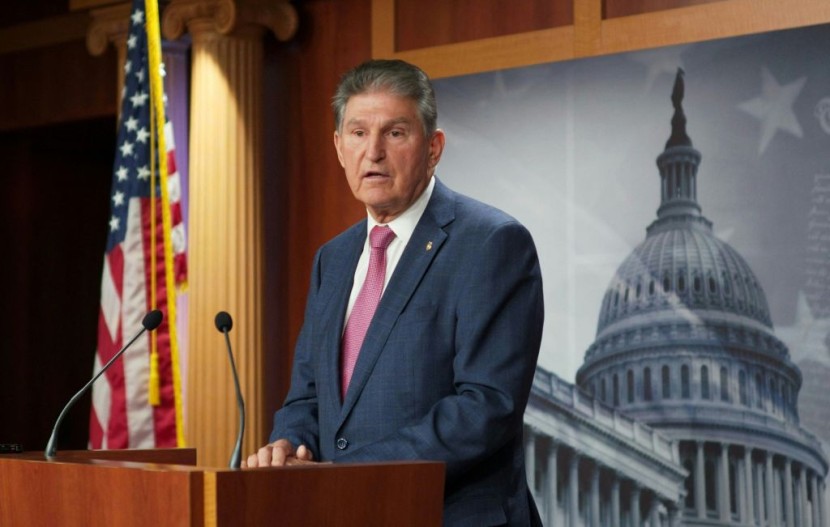
Some Democrats argue that resurrecting President Joe Biden's legislative plan, which includes raising taxes on some high-income persons and lowering prescription medication costs, might help solve the greatest inflation in decades.
According to recent Labor Department data, prices are up 9.1 percent from a year ago, the largest increase since 1981 and slightly below experts' predictions.
Democrats Push To Pass Reconciliation Bill
Sen. Joe Manchin (D-W.Va.) responded quickly, expressing caution as he and Senate Majority Leader Charles Schumer (D-N.Y.) attempt to find common ground on components of the president's economic program after discussions broke down last year.
However, a few Democrats believe that approving a reconciliation plan that raises taxes on some high-income individuals will help curb inflation. Schumer has been working closely with Manchin on a trimmed-down package and has shown progress in recent weeks on issues ranging from changing prescription drug pricing to ensuring Medicare's stability and boosting taxes on some high-income individuals.
Manchin appeared to be optimistic about the chances of reaching an agreement on medication costs and Medicare, but he added, "I don't know, but I am very, very cautious."
He has also emphasized that any proposal Democrats want to pass through budget reconciliation, which allows the party to pass legislation in a 50-50 Senate without GOP support, must reduce the deficit, telling reporters that deficit reduction will be 50%, The Hill reported.
However, the news of the skyrocketing increase in goods and services has raised concerns that the party's plans to move forward, with a budget reconciliation bill to address climate change, allow Medicare to negotiate drug prices and unwind parts of the GOP's landmark tax reform bill may be jeopardized. Manchin, who was instrumental in blocking a broader party-line plan last year due to inflation fears, warned on Wednesday against enacting legislation that would drastically boost spending.
Manchin stated that he still supports the drug pricing wording but will do everything necessary to have "input on scrubbing anything humanly possible that may be considered provocative."
While Manchin contends that any provision that may lead to inflation should be removed from the bill, liberals say that legislation that targets a broader variety of topics is required to battle the problem.
Republicans have made inflation a prominent component of their message campaign as they seek to retake control of both houses, claiming that people who are suffering the effects of inflation will go to the polls this fall, as per Washington Examiner.
Read Also : Joe Biden Fires Back at Reporter Over 2024 Presidential Run Question: "They Want Me To Run"
Congress Aims To Prevent Spike in Health Insurance Costs
Meanwhile, unless congressional Democrats achieve an agreement on a major piece of their long-stalled economic stimulus measure, about 13 million Americans' health insurance prices could rise next year, and millions more may be without coverage entirely.
The most pressing issue is the status of tax credits that assist low- and middle-income Americans in purchasing health insurance every year. Unless Congress continues these subsidies, about 13 million people's monthly premiums would rise in January, according to the Kaiser Family Foundation, by hundreds of dollars per person.
Some Democrats also aim to give expanded assistance to the roughly 2.2 million individuals, largely women and people of color, who are too poor to qualify for federal aid yet unable to enroll in Medicaid because they live in 12 states where Republican leaders have refused to extend program eligibility.
Democrats attempted last year to give premium-free health insurance to more than 2 million impacted individuals through insurance marketplaces through 2025. However, Manchin stated at the time that the federal government should not be obliged to subsidize some states' benefits while others covered their own.
The concept has mostly gone from the current conversations as Schumer and Manchin focus on other health care problems and explore ways to keep the total cost of the measure down. Some congressional aides say that the chances of it being included in a final budget agreement are slim, but nothing has been resolved.
Nonetheless, Democrats have continued to make their case. On Tuesday, Sen. Raphael G. Warnock (D-Ga.) noted that the Medicaid difference affects hundreds of thousands of individuals in his state alone. As a consequence of his close reelection fight, which might determine Senate control next year, the senator said he has made Medicaid expansion a high priority.
Some ardent supporters of eliminating the Medicaid gap have increased their advocacy efforts, notably in response to the Supreme Court decision in Dobbs v. Jackson Women's Health Organization, which reversed Roe v. Wade. This week, Protect Our Care, a Democratic-aligned advocacy group, circulated papers on Capitol Hill stating that abortion prohibitions combined with a lack of Medicaid expansion impact women of color and their families, leaving them without coverage and at risk for poor birth outcomes, according to Washington Post via MSN.
Related Article : Trump Seeks To Discuss 2024 Election Campaign Plans at Secret Donor Dinners Amid Slumping Support
@YouTube








